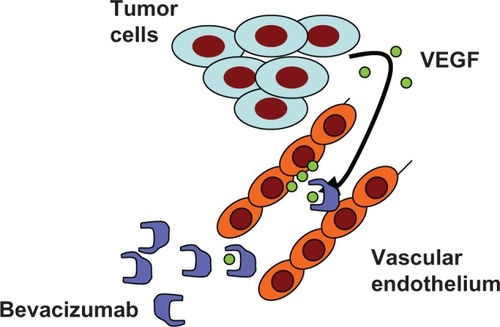Figures & data
Figure 1 Tumor cells secrete various isoforms of VEGF in a paracrine fashion. VEGFs stimulate the growth, division and permeability of vascular endothelial cells through interaction with cellular VEGF-receptors (VEGFR1 and VEGFR2). This process of neovascularization can be disrupted by the neutralizing humanized monoclonal antibody bevacizumab.

Table 1 Bevacizumab combinations with targeted agents currently under investigation